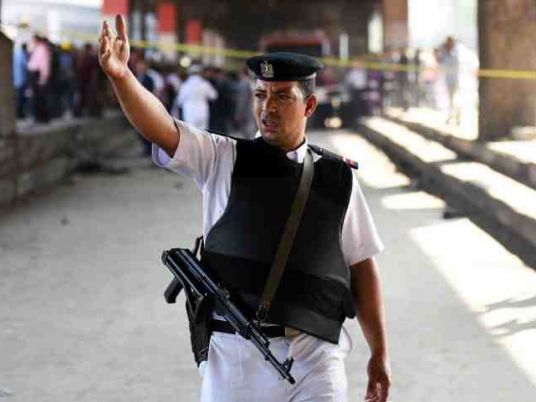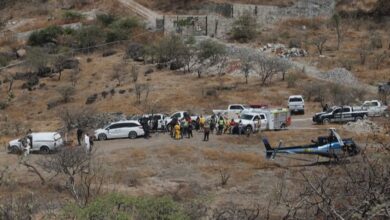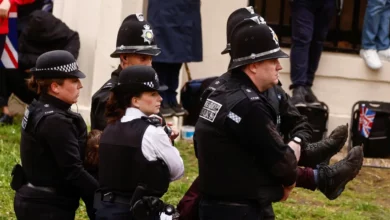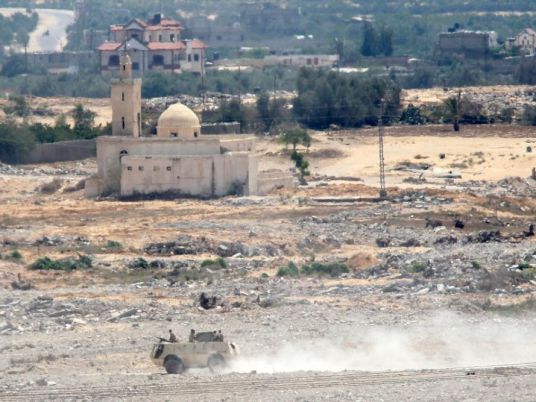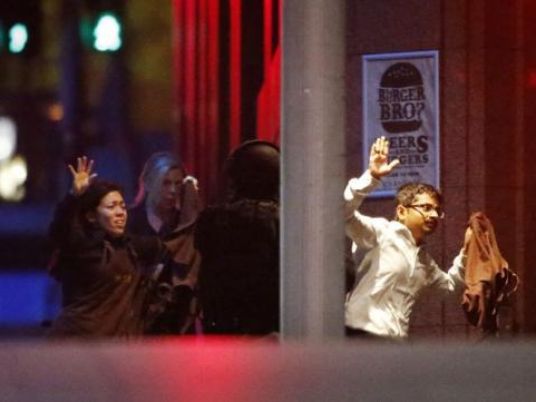
A hostage who died during a siege in a downtown Sydney cafe was killed when she was struck by fragments of a bullet fired from a police officer’s gun as authorities stormed in to end the 16-hour standoff, a lawyer told an inquest on Thursday.
Katrina Dawson, a 38-year-old lawyer who was among 18 people taken hostage last month by a gunman, died after being hit by six fragments of a police bullet that had ricocheted off a hard surface, Jeremy Gormly, a lawyer assisting the coroner, told the Glebe Coroner’s Court. One fragment struck a major blood vessel and she quickly lost consciousness, he said.
Another hostage, 34-year-old cafe manager Tori Johnson, was killed after gunman Man Horan Monis forced him to kneel on the floor and then fired a bullet into the back of his head with a sawed-off shotgun, Gormly said. He is believed to have died immediately. A police sharpshooter witnessed Johnson’s killing, prompting police to move in, Gormly said.
The details of the deaths of Dawson and Johnson came on the opening day of the inquest into last month’s siege at the Lindt Cafe. Monis, a 50-year-old Iranian-born, self-styled cleric with a long criminal history, took the customers and workers captive and forced them to outline his demands in a series of online videos – including that he be permitted to speak to the prime minister and be delivered a flag of the Islamic State group.
The standoff ended when police stormed the cafe in a barrage of gunfire to free the hostages. Monis was killed, along with Dawson and Johnson.
Officials had previously refused to say whether the hostages died at Monis’ hand or were caught in police crossfire. The coronial inquest – a court-like proceeding convened after unusual deaths in Australia – is aimed at determining how they and Monis died, and whether the tragedy could have been prevented.
Gormly cautioned in his opening address that the rundown of events he was giving was preliminary, and based on his interpretation of the evidence he had seen thus far. The coroner will make the final declaration on how the hostages and Monis died.
“Rarely have such horrifying events unfolded so publicly,” Coroner Michael Barnes told the court. “Overlaying the intense personal suffering on display were fearsome themes which called up wider and more far-reaching threats that understandably terrified many, even among those who only saw it from afar.”
The inquest will look into how police managed the crisis, including whether snipers should have taken a shot at Monis through the windows.
“Questions concerning the use of police marksmen, whether to wait or act immediately and other options have been discussed in public; I anticipate evidence on all those matters,” Gormly said.
In his opening address, Gormly gave a detailed account of how the siege unfolded on the morning of Dec. 15:
Around 8:30 a.m., Monis walked into the cafe carrying a hidden pump-action, sawed-off shotgun. He ordered and ate a piece of chocolate cake and drank a cup of tea, before moving to another table near the door. After half an hour, he asked a waitress to bring him the cafe’s manager.
Johnson sat down with him and other workers soon noticed their manager appeared stressed by what Monis was saying. Johnson then told a staffer to get the keys from his office, lock the door and remain calm.
Monis then put on a vest and a bandanna, brandished his shotgun and said he had a bomb in his backpack. He ordered everyone to move to one side of the cafe and forced several hostages to hold up a black Shahada flag with the Islamic declaration of faith written on it.
Under Monis’ instructions, Johnson called the police and said Australia was under attack by the Islamic State group and that several radio-controlled bombs had been placed around the city – a threat that turned out to be false.
Some hostages managed to flee at different points throughout the ordeal. Monis first fired his gun after one group of hostages escaped; the bullet struck the wall above the main entry to the cafe. The second bullet he shot was the one that killed Johnson. He fired his gun three more times as police moved in but none of those bullets hit anyone. He had another 21 cartridges in his pockets.
Two police officers fired 22 shots as they stormed into the cafe. At least two police bullets or fragments hit Monis in the head, and 11 others struck his body.
The inquest will examine Monis’ mental health, his motivations for the attack and what – if any – terrorist associations he had. Gormly said it doesn’t appear Monis had established any contact with the Islamic State group.
John O’Brien, one of the first hostages to escape, attended the hearing, along with supporters of Johnson. Outside court, he said listening to the summary of the horror he had lived through had been difficult.
“It was upsetting – very upsetting – for Tori Johnson’s family,” he said. “We were sitting in there and (it was) very emotional.”
The inquest was adjourned for the day, and the coroner has not yet set future hearing dates.
Separately, Prime Minister Tony Abbott has ordered a sweeping government review of the siege and the events leading up to it. The review, expected to be released in the next week or two, will examine why Monis was out on bail despite facing a string of violent charges, including 40 counts of sexual assault and accessory to murder in the slaying of his ex-wife.
The review will also address how Monis – who didn’t have a gun license – obtained a pump-action shotgun despite Australia’s strict gun laws.
Monis was on the Australian Security Intelligence Organisation’s watch list in 2008 and 2009, but was later dropped from it. The agency was tracking Monis because he had sent a series of offensive letters to the families of dead Australian soldiers.

